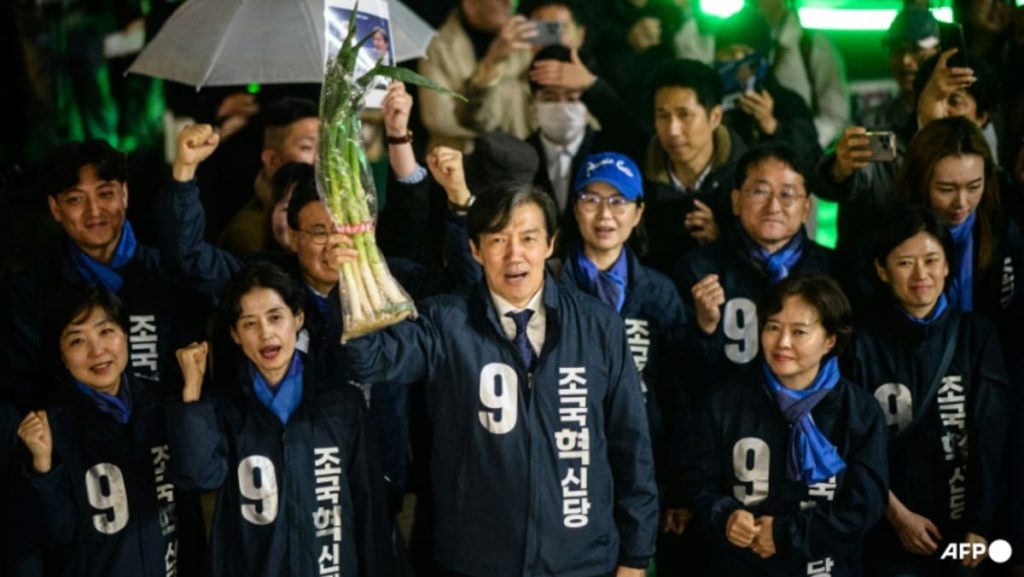Accused of forging documents to get his children admitted to university, Cho’s family has faced severe consequences. Cho’s wife spent more than three years in jail, his daughter had to give up her medical license, and Cho himself is at risk of a two-year prison sentence if his appeal is rejected by the Supreme Court. Yoon’s involvement in prosecuting the scandal thrust him into the national spotlight and helped him secure a victory in the 2022 presidential election, despite having no prior political experience.
Despite his initial success, Cho’s story is now being used to further Yoon’s anti-Yoon message among voters who are increasingly dissatisfied with the president and his administration. Cho has stated his intention to undermine President Yoon’s leadership, with plans to render him ineffective and ultimately remove him from office. The emergence of Cho and his party as a prominent political force indicates a widespread lack of confidence in both Yoon and the ruling Democratic Party among voters, according to political experts.
The ascent of Cho’s party in the polls demonstrates a significant rejection of the traditional major political parties in South Korea. The KDI party, established only weeks prior, is polling at nearly 30 percent approval, indicating a significant portion of the population is dissatisfied with the handling of governmental affairs by both Yoon’s administration and the Democratic Party. Yoo Jung-hoon, a political commentator, views the popularity of Cho’s party as evidence of the failure of the major parties to address the concerns of voters effectively.
Yoon’s lack of engagement with the public by holding open press conferences since August 2022 has also contributed to his dwindling support and created an opportunity for alternative political figures like Cho to rise in prominence. The upcoming elections in South Korea are crucial, as the outcome could impact the balance of power in parliament. Cho’s party, if successful, could potentially form a coalition that blocks Yoon’s People Power Party (PPP) from regaining control of parliament, a situation that has not occurred since 2016 due to the country’s proportional representation system.
With South Korea entering the final week of the campaign period, Cho’s party is running on a platform that emphasizes the need for change and accountability in the government, framing the election as a referendum on Yoon’s leadership. The strong support for Cho’s party in recent polls suggests that many voters share these sentiments and are seeking an alternative to the current political landscape. The outcome of the election will be closely watched, as it has the potential to reshape the political landscape and influence the direction of governance in South Korea.


